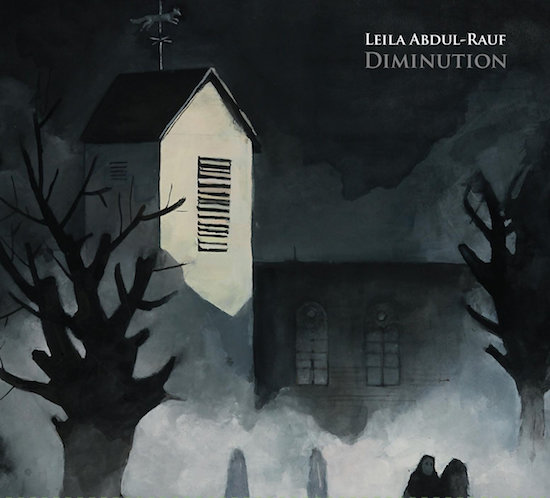Leila Abdul-Rauf’s current bands include Vastum (brutal death metal for non-knuckleheads), Cardinal Wyrm (fantastical epic doom) and Hammers Of Misfortune (a longstanding, mercurial group which salutes multiple metal genres without appearing dilettantish). Meanwhile, Diminution is 38 minutes of intensely lush, somnambulant music constructed from piano, brass, drones and occasional vocals; suggestive of jazz, modern composition and certain pockets of post-rock. It is not, for example, Chill-Out Or Die by Würzel from Motörhead, or something else which implies a certain frivolity of intent.
It would at be pleasing if Diminution was picked up on by metalheads on the basis of Abdul-Rauf’s other activities, but a pity if that ended up comprising most of its audience. I’m struggling to think of many current acts travelling similar paths who are this tonally rich, their parts this carefully assembled: Andrew Chalk’s Elodie, deathless German jazzers Bohren & Der Club Of Gore, perhaps The Caretaker. While an exercise in precision rather than abstraction, there isn’t anything on this album that nods to verse-chorus song structure even as much as ‘Pull’, from her 2015 album Insomnia (vocals for which are sung by Abdul-Rauf’s mum, pleasingly). Diminution opens with its title track, which feels like a sort of flagship for the album: slow, gloomy, haunted piano entwines with elegiac trumpet, and very little else happens over six minutes but what one hears proceeds to envelop.
Abdul-Rauf’s vocals here are so unlike Vastum, where she’s one of two singers, it’s almost funny. And yet there’s a fairly clear commonality between that vicious gutter gurgle with the employment of sighs from the ether and the half-identifiable phrases on pieces here including ‘Life Leaving’ and ‘Wayward’: the voice as textural tool rather than vehicle for transmitting a message. Parts built around guitar are slightly murkier and less uplifting, but no less impressive. ‘Abjure’ rolls through the desert at a tectonically slow pace, recalling – not uniquely on Diminution, in fact – Virginian group Labradford, specifically on their self-titled 1996 album. ‘Hindsight’ features a simple strummed motif, subject to intense processing until it resembles some aquatically submerged chiming instrument – this time, the 90s post-rockers I’m pondering are Michigan’s great Windy & Carl.
As is common with music of this nature, Diminution’s approach to track titles is mostly obscure, the exception being ‘Self-Recognition (For Pauline Oliveros)’. Although the album’s most drone-based piece, it’s by no means a blatant homage to the American minimal great, who died in 2016. Abdul-Rauf, though, has cited Oliveros’s writing on deep listening as an influence on her own work, and this outstanding album suggests both a profound understanding of the concept and a worthwhile suggestion of how listeners might engage with it.


